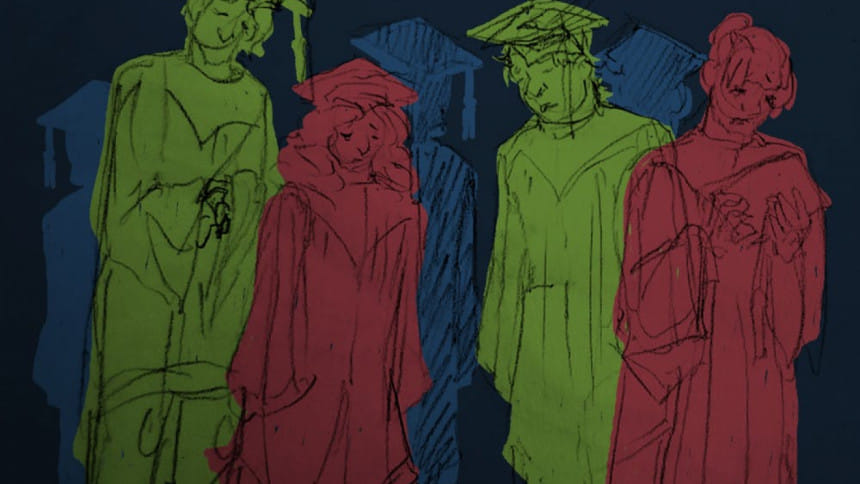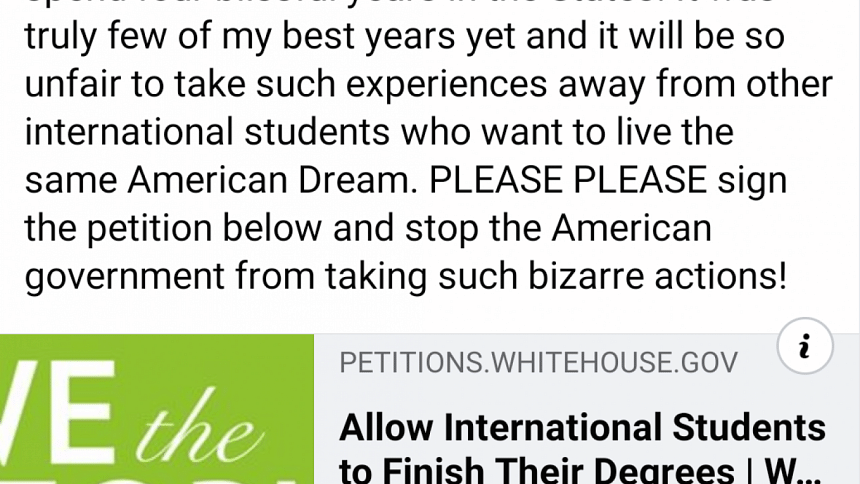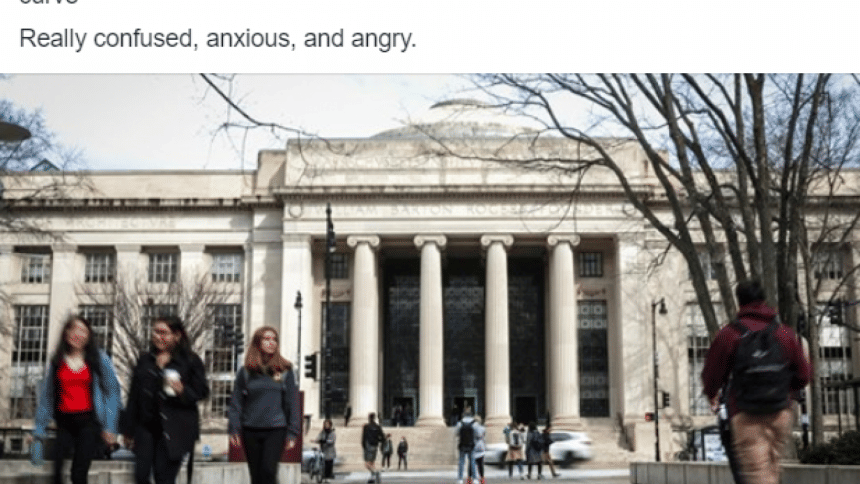NOWHERE TO GO

"What am I going to do?"
This was the first thought I had when I heard the news. This was what millions of students from all over the world had to ask themselves when they discovered the new ICE (Immigration and Customs Enforcement) directives for non-immigrant students in the United States.
These directives, released on the July 6, present a bleak future for us.
- Students whose institutions have moved to fully-online instructions for the fall semester will not be issued visas and could face deportation if they remain in the US. Deporting students for something that was legal until a few days ago is as bad as it sounds. As a result, months of planning and thousands of dollars paid to take that next step towards quality education abroad suddenly hit a brick wall. And students who have unsupportive home environments could be forced back into toxic households. Let's also not forget the great health risks posed by travelling all across the world, taking multiple stops, in the midst of a deadly pandemic.
- While many colleges are offering an online-only semester for students who are unable to be present in person because of the pandemic, these students will now be required to be present in-person in order to maintain their visa status. This goes against common sense considering a global health crisis, especially in a country where 50,000 new coronavirus cases were reported the past day. Making students, many of whom had gone home when the pandemic started and in-person classes were suspended, come back and attend in-person classes in the current scenario is nothing short of reckless endangerment.
- Students in colleges with a hybrid model of both in-person and online classes have to deal with the most vague directives of all, which say, "(students) will be allowed to take more than one class or three credit hours online". All this means for sure is that these students will not be allowed to have a fully-online course load. For students like myself (senior at University of Massachusetts Amherst), this means going back to my course catalogue and finding an in-person class that fulfils my major requirements since all my courses for the fall semester will be conducted remotely.

Funnily enough, I did have an in-person lab course; it got cancelled, however, since the instructors and university authorities decided that it could not be safely conducted in-person. Decisions such as these really make you wonder how safe the colleges switching to only in-person classes really are, don't they?
These developments have made it a very stressful time for Bangladeshi students in the US, and the general emotion around them is frustration.
"Being thousands of miles away from your country to pursue higher studies can be stressful for many reasons. But I honestly didn't think I'd have to wake up one day and be threatened with the prospect of being deported for a mindless new policy," says Nuren Iftekhar, a second-year PhD student at Virginia Tech. He is unsure if he can take the required courses since most of his focus is on research. Failing to find enough in-person courses could mean having to stop his research work midway, pushing his chances for a doctorate degree into jeopardy.
Shureed Rahman*, a third-year undergraduate student at Drexel University, fears the worst.
"Drexel is supposed to have a hybrid system for fall term which means I can stay (I guess). But I am also a little worried that cases might rise, and we might have to do an entirely online program," he says. He is all too aware that an online program would mean having to leave the country, with a future return being uncertain, also taking into consideration of the Covid-19 situation back home. The potential injustice of losing three years of progress because of one ridiculous decision is something he is seriously dreading.

For Nuhan B. Abid, a junior at Dickinson College, it is even more difficult to adjust to these new conditions. As a double major, there are fewer options for him to get a schedule that has in-person classes while still finding ways to gain credits towards his majors. In addition, his plans to stay in the US in the event of an online curriculum are off the table and now he will have to contend with time-zone differences, poor internet connections, and a crowded household back home.
Even in such dire circumstances, there are still people willing to stand up for us. All the international students I've spoken to have told me that their international students' offices have been in contact with them, assuring that they will contest this directive. Many are in talks with representatives in local government already, and some places like Hampshire College have pledged to give international students sanctuary this fall as much as their capacity permits. At the time of writing this article, you also have universities like Harvard and MIT suing the government administration to block this directive, with many other institutions offering support.
While this does offer some hope, this doesn't change the fact that international students have had all their newly-made plans shattered, less than a week after most colleges finally shared their plans for the fall semester. In addition, many hopeful dreamers in Bangladesh are possibly packing their luggage and getting their documents in order to apply for student visas. That would have been bad enough, but all of this had to happen during a once-in-a-generation pandemic ravaging the world.
One can't help but wonder what we did to deserve this.
*Name has been changed at request of anonymity
Wasique Hasan is confused and tired. Contact him: fb.com/hasique.wasan

 For all latest news, follow The Daily Star's Google News channel.
For all latest news, follow The Daily Star's Google News channel. 



Comments